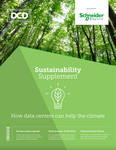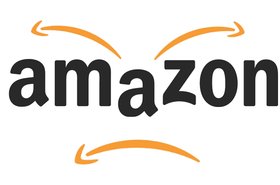Amazon's carbon emissions grew by 19 percent in 2020. Despite this, the company says it is on track to have a carbon footprint of zero by 2040.
The company's Sustainability Report for 2020 gives an explanation for the apparent contradiction, saying that the company grew so fast during 2020 that its emissions continued to grow. Meanwhile, sustainability measures reduced its carbon intensity (emissions per dollar) during the year.
No time to reduce yet
"While Amazon’s business grew significantly in 2020 and our absolute carbon emissions increased 19 percent during the same period, our overall carbon intensity decreased 16 percent, from 122.8 grams of CO2 equivalent per dollar of GMS [gross merchandise sales] in 2019, to 102.7 grams of CO2 equivalent per dollar of GMS in 2020," says the Report. adding: "We are still in the early phase of decarbonizing our business."
"This carbon intensity value is in line with the targets we are developing through the Science Based Targets Initiative (SBTi)," the report continues. "It will take several years for the carbon reduction benefits of our investments to be fully reflected in our footprint."
Despite admitting in the report that the company has increased its impact on the planet, Kara Hurst vice president, worldwide sustainability, pointed out various positive steps Amazon has taken: "We reached 65 percent renewable energy across our business in 2020 and became the world’s largest corporate purchaser of renewable energy."
The company has promised to use only renewable energy by 2025, and to decarbonize by 2040. To reach these goals Hurst says: "We are electrifying our delivery vehicles and transportation network. To date, we have delivered more than 20 million packages to customers in electric delivery vehicles across North America and Europe."
Among other measures, the report promises that Amazon will move to sustainable packaging and promote recycling.
While Amazon's employment practices have been criticized, Hurst says: "We offer an average starting pay of over $17 per hour in our fulfillment and logistics network, along with industry-leading benefits for full-time employees. We are also advocating for an increase in the federal minimum wage to $15 per hour.
"We set, and met, goals in 2020 to double the representation of Black directors and vice presidents, and we set new diversity, equity, and inclusion goals."



